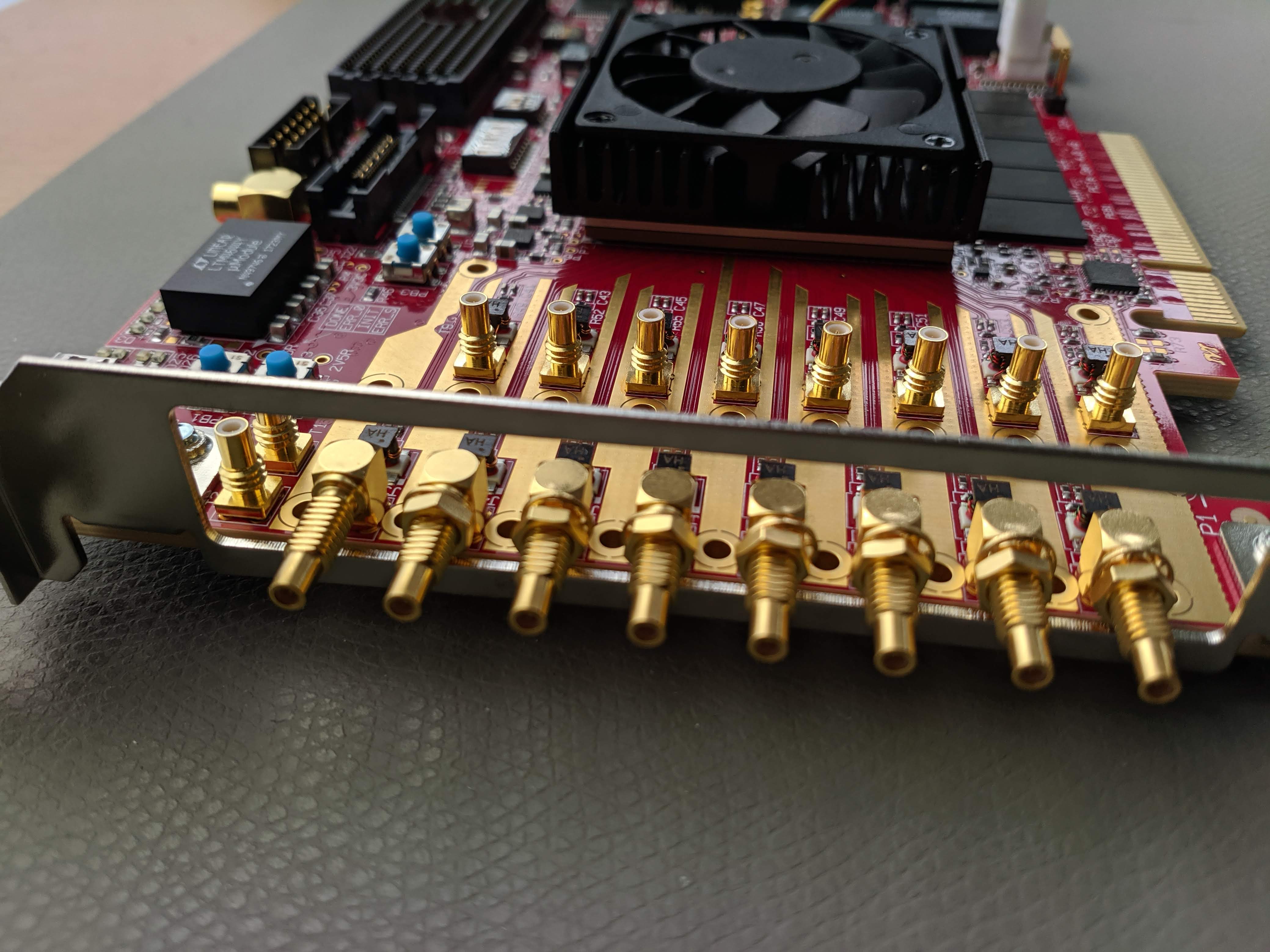It is in the nature of experiments in physics that with each generation the number of sensors increases, with a simultaneous increase in sensitivity. The storage of all data would overload every computer centre is therefore no longer possible. For this reason, the collected data are ideally pre-processed directly at the experiment, which could include, for example, a selection of relevant data or a reconstruction. This requires highly specialised electronic systems that allow parallel processing of the data in real time. These systems usually consist of hardware, FPGA firmware and software. They can be multi-tiered and, depending on the experiment, comprise several hundred boards.
Using state-of-the-art processing technologies, we research solutions that enable the realization of large-scale experiments for the next and next but one generation. Increasingly, heterogeneous solutions are being used, where the task is implemented in the respective optimal target technology, i.e. software, FPGA firmware, GPU software, backend software, etc. At the same time, we are working on the solutions that are to be used for the current generation of experiments. Last but not least, we maintain electronics that are in use in ongoing experiments and continuously incorporate improvements according to the needs of scientific knowledge.
Our core competencies include
- Design of system concepts for ultra-modern data acquisition and readout systems
- system partitioning
- Development of specialized printed circuit boards
- Assembly and commissioning of in-house developments
- Development of FPGA firmware
- Efficient implementation of signal processing algorithms in FPGAs
- Development of hardware-related software for real-time operation
- Development and implementation of concepts for calibration
- Conception, implementation and integration of various slow control solutions
- Integration and commissioning of complex data acquisition and readout systems
Our technologies
- DAQ for high energy physics
- DAQ for superconducting sensors
- Electronics for quantum computing
- DAQ for the Katrin Experiment
- DAQ for the Tristan experiment


